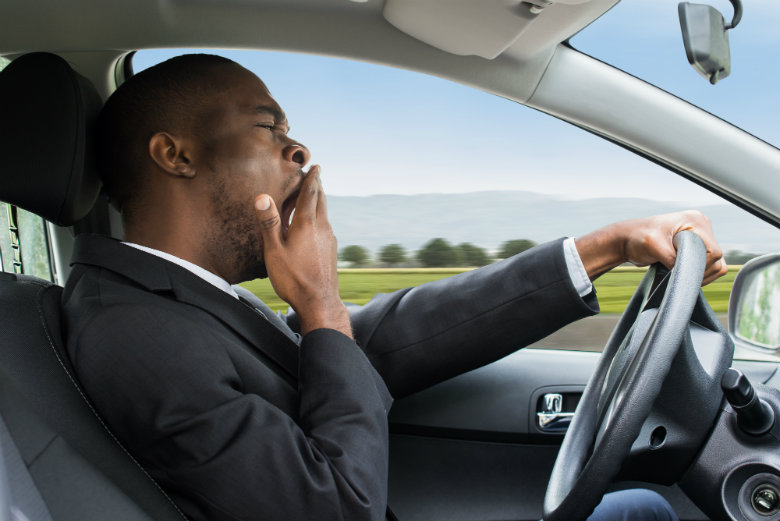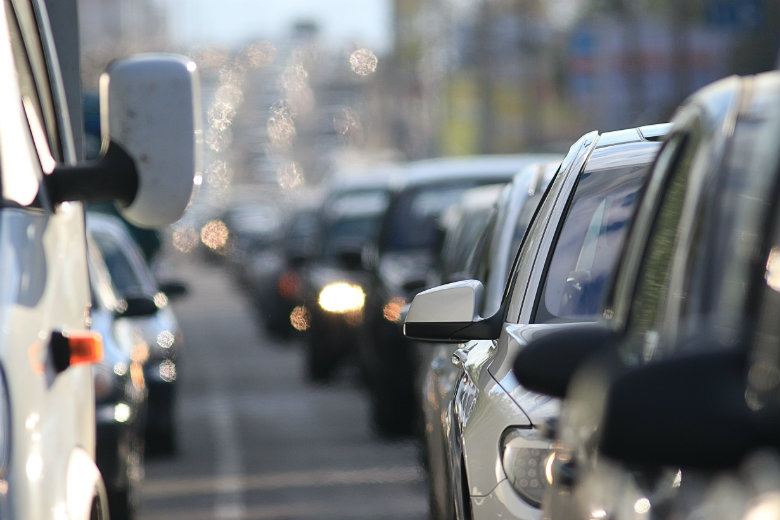Auto Safety Tips
Auto safety is important for every driver on the road, because automobile accidents are a leading cause of injuries and death in many countries. Vehicle manufacturers have designed and implemented numerous features to ensure the safety of all passengers. This would include the incorporation of the seat belt, air bag, and pre-crash system.
Although car safety features have been improved over the years, collisions still occur. Auto safety is dependent on more than just the safety features a vehicle has. A person’s safety behind the wheel depends on their driving behaviors and techniques, as well. It is important to remain alert, focus on the road, follow traffic laws, and be prepared for any situation.
In your Driver’s Education course, you were taught the traffic laws and rules of the road. This way, as a new driver, you could be prepared to drive and share the road. Sometimes, we need a refresher of the importance of auto safety. In this post, you will also learn some things that you did not learn in Driver’s Ed, such as how to pack an emergency car kit.
At National Dispatch, car safety is our top priority. We want you to stay safe while behind the wheel. Therefore, we have assembled a list of 5 auto safety tips to follow on the road. Check them out below:
1. Stop Driving Distracted.
Distracted driving is any activity that takes your attention or eyes off the road, even for a brief moment. This would include talking or texting on the phone, eating or drinking, applying makeup, or messing with the radio. These activities may take your eyes off the road for only a couple of seconds, but deadly consequences could result.
Driving deserves your full and undivided attention. Many states have put into effect laws prohibiting distracted driving activities, such as texting or talking on the phone while driving, due to the dangers. According to NHTSA, teenage drivers were the largest group reported for being distracted at the time of a collision or crash. However, all ages are susceptible to driving distracted. Furthermore, it is likely that at some point in your life you have done one of the activities listed while driving.
What Can You Do To Avoid Driving Distracted?
- Avoid eating while driving. Sometimes it may feel like there are not enough hours in the day. Maybe, you are running late for a meeting or to work. Stopping through the drive-thru to get a quick bite to eat on the way may seem like a time-saver. However, it means that you will be less focused on the road. Food or drink spills are both reasons why people take their eyes off the road.
- Pull over to make a call. Try to schedule calls when you are not behind the wheel. Instead, use your phone for emergency situations only. When you must make a phone call, pull over safely to the side of the road. It is also a good idea to put your phone away, so you will not be tempted to make a call or text. It will be out of reach.
- Do not multi-task. Get everything taken care of before you hop in the car. This means putting on your makeup at home, instead of while driving. In addition, avoid trying to find your phone charger or favorite CD while focusing on the road at the same time.
2. Avoid Driving Drowsy.
Driver fatigue is one of the major causes of accidents or near-accidents. The statistics might surprise you. A rather large percentage of people have reported driving while feeling tired. They may have even fallen asleep while behind the wheel of a motor vehicle.
The most likely groups of people to drive while feeling drowsy include: shift workers, young adults, and individuals with children. However, driver fatigue can affect anyone. It is important to stay alert. Drowsy driving can have serious consequences. Operating a car under this condition can make it difficult to pay attention on the road and hard to react to your surroundings.
What Can You Do To Avoid Driving Drowsy?
- Know the signs. You need to monitor yourself, and understand when you may be getting too tired to drive. It is important to keep yourself and others safe on the road. Look for these signs: heavy eyelids, difficulty remembering last few miles driven, yawning, lane drifting, and trouble keeping your head up.
- Get enough sleep. Sleep deprivation is a major cause for driver fatigue. It is recommended that adults get seven to nine hours of sleep each night. If you have a hard time getting to sleep at night, disconnect from electronic devices, read a book, or try relaxation exercises.
- Pull over if you feel tired. If you start to feel sleepy, pull over to a safe location and take a short nap or grab some caffeine. If you are driving with another person, you can always switch off driving. In addition, avoid driving when you would usually be sleeping.
3. Drive Safely In Traffic.
Heavy traffic is a part of life for any person who commutes to work in a large city. Even if you work outside of the city, you likely face the daily battle to get to work. Depending on the time of day, traffic can be a total nightmare. Cars are lined up bumper to bumper. Thus, these traffic jams can produce driver anxiety.
Traffic congestion requires drivers to be fully aware of their surroundings at all times. In these conditions, the roads are crowded. This means it is even more important to stay alert. When having to wait in traffic for too long, people start getting impatient. This can result in collisions.
How Can You Drive Safely In Traffic?
- Avoid aggressive driving. Avoid weaving in and out of lanes, or merging across lanes. You should also be prepared if another driver were to do that to you. Be aware of any unsafe driving behavior on the road.
- Pay attention. Watch the traffic in front of you. When you see brake lights, it is time to start slowing down. Take your foot off the gas. Looking ahead will help you avoid braking suddenly.
- Keep a safe distance between cars. It is said that you should allow yourself a three second distance between you and the vehicle in front of you. Keeping a safe distance will allow more time for braking and help you avoid rear-end collisions.
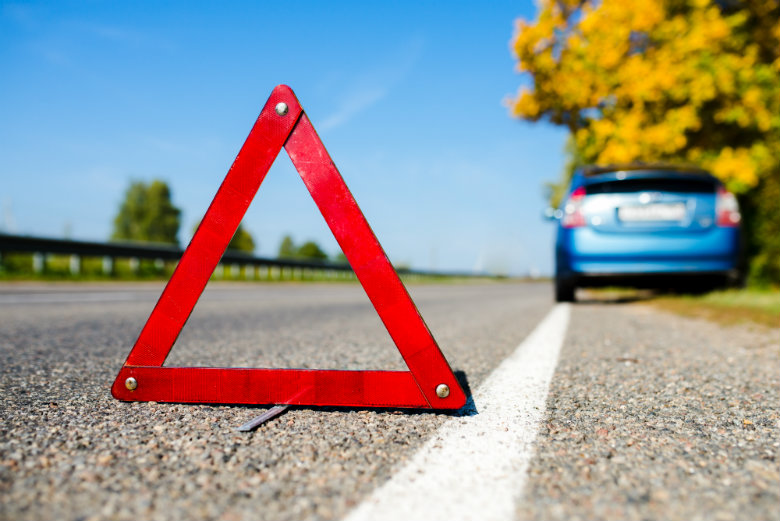
4. Be Prepared For An Emergency.
No one ever expects their car to breakdown and leave them stranded. The truth is that a breakdown can occur at any time and any where along the road. It is important to be prepared for a roadside emergency in case it does happen when you are driving.
There are many reasons for a car breakdown. The older the car, the more likely it is to have problems. However, a new car is still capable of developing an issue. The most common issues result from faulty batteries, lost keys, flat tires, and fuel problems. Proper preparation and maintenance can aid in avoiding and dealing with a roadside emergency.
How Can You Prepare For A Roadside Emergency?
- Have numbers on hand. Consider investing in an AAA membership. There are numerous perks of being a member, including towing, delivery of free gas or new battery when stranded, unlocking car, and discounts. If you are not a member, at least keep the number of a mechanic or tow company on hand.
- Prepare an emergency kit. Pack your car with a few items that may come in handy in the case of an emergency. Here is what you might you need:
- Jumper cables – You never know when your battery might die. There are also portable jump starters available, so that you can jump-start without the use of another car.
- Flashlight – A breakdown can occur at night. It is a good item to keep in your vehicle. Be sure it has working batteries.
- First aid kit – It contains all the basic items in case you get hurt.
- Tire jack – Keep it in your car, and make sure you know how to use it if you ever have to.
- Fix-a-flat – It serves as a temporary fix for holes in your tire.
- Paper towels/towel – Doing car maintenance can cause your hands to get dirty. You will want something to clean up with.
- Tools – Keep a small box of tools in the vehicle with an adjustable wrench, pliers, and screwdrivers.
- Motor oil – Put an extra quart of oil in the back of the car, in case you need it.
- Keep up with routine maintenance. Many people avoid taking their vehicles in for routine maintenance, but it is crucial for the longevity of the car. A trusted mechanic will ensure that your vehicle is running as it should. This can reduce the chance of a breakdown.
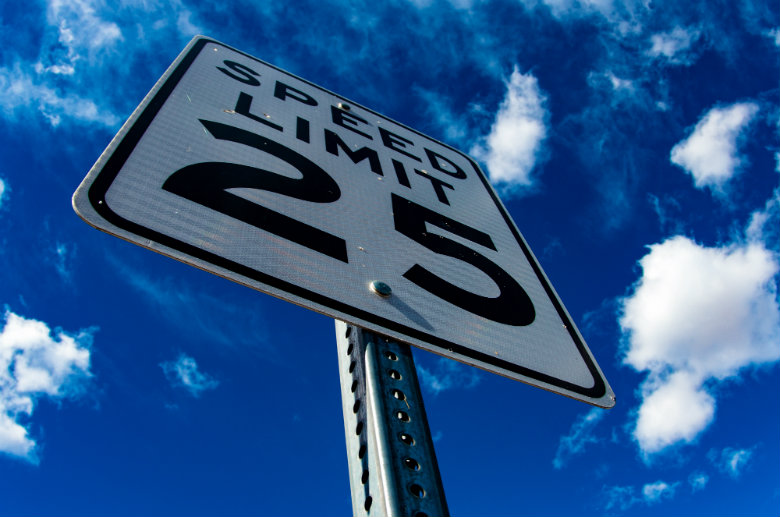
5. Follow Traffic Laws.
It is important to make smart and safe decisions when driving. This is not only for your own safety but for others on the road, as well. Following traffic laws reduces your chances of having an accident. Obeying the rules of the road means going the speed limit, using turn signals, and stopping at traffic lights.
Think about the consequences if you choose to break the law. For one, you could get a ticket. This could lead to court dates and hefty fines. More serious and fatal consequences could also result. It is better to follow all traffic laws and practice safe driving, instead.
How Can You Avoid Speeding?
- Give yourself plenty of time. One of the primary reasons why people speed is because they are running late for work, an event, or an appointment. To avoid rushing to get somewhere, leave early. Allow yourself plenty of time to reach your destination.
- Use cruise control. On the highway, it can be easy to speed, especially if there are not many cars around. If your vehicle has a cruise control setting, use this to stay at a constant and safe speed.
- Watch the speedometer. Many people speed without even realizing that they are doing it. When you are driving, check the speedometer periodically to ensure that you are going the speed limit.
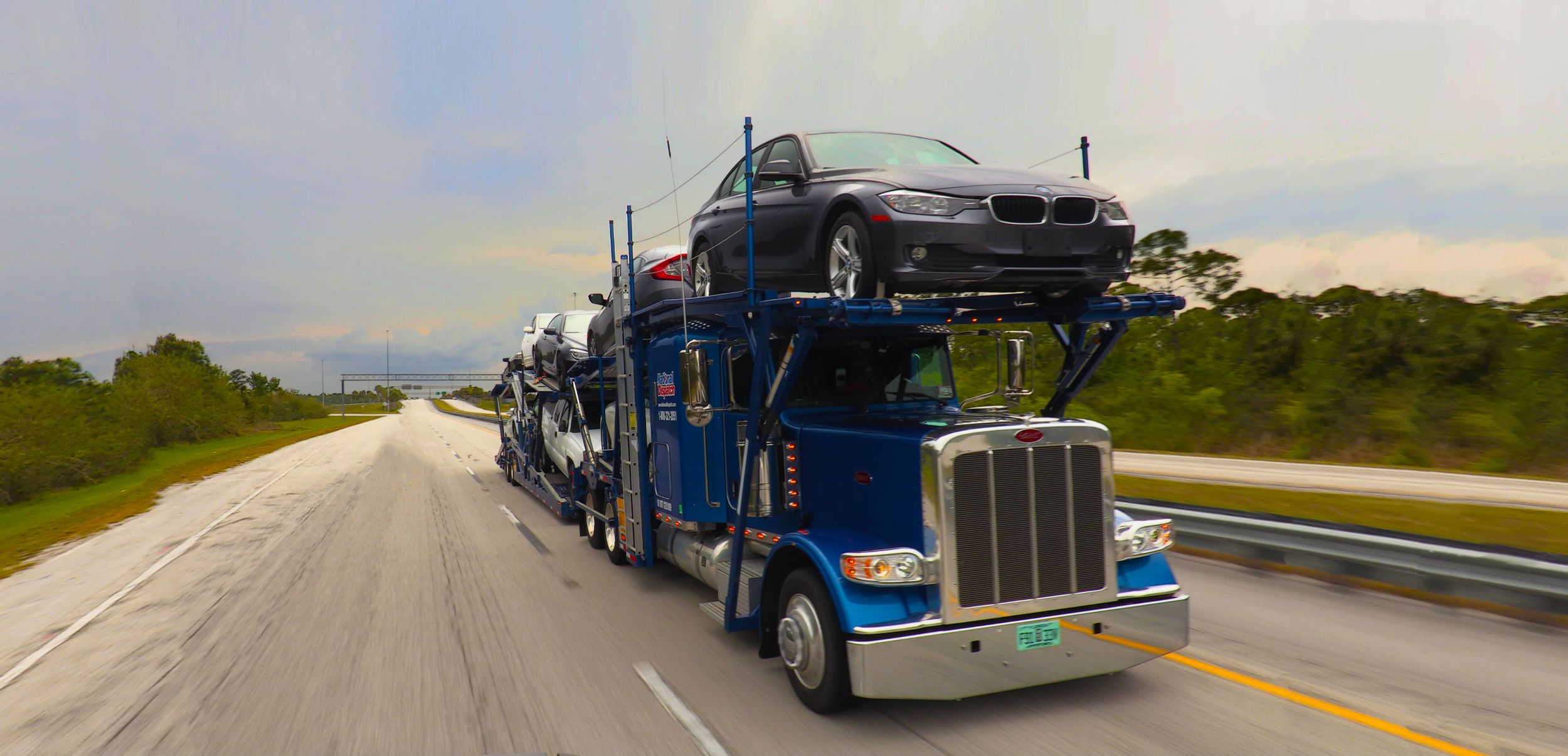
Auto Transport: An Alternative To Driving
Auto transport is a popular option when an individual is relocating to another city or state. However, it is used for more than just residential moves. Auto transport is a fast and safe solution for any type of move, including a corporate relocation, vacation, military move, and more.
It is a great option when moving coast to coast, because a long distance drive is involved. Auto transport can save you time, energy, and stress. When moving far away, drivers must be concerned with sitting hours behind the wheel of a vehicle. Driver fatigue is a risk. There is also the possibility of getting stuck in traffic.
Skip the headaches, and choose the easier alternative. National Dispatch offers nationwide vehicle shipping options. Our auto transport services are insured, licensed, and trackable. Therefore, you will have peace of mind, knowing your car is with a company you can count on.
What Can You Expect With National Dispatch?
- Fast Service. We will deliver your vehicle to its destination in a timely manner. If you need your car shipped on a short deadline, we have options available. We offer a guaranteed shipping option, which is for individuals needing their car as soon as possible.
- Convenience. Our door-to-door shipping services provide our customers with convenience. The vehicle is delivered directly to your home, as long as conditions permit.
- Options. We ship a wide variety of vehicles, including cars, trucks, vans, SUVs, and motorcycles. If you own a non-running car, we have the means to transport that vehicle, as well.
- Hassle-Free Rate. Not all websites offer a free, no obligation quote calculator. For a free, instant car moving quote, go to our website at https://www.nationaldispatch.com/ and enter your vehicle make, vehicle model, pickup location, and delivery location. You will receive a quote in seconds.
Call us at 800-321-2051 to speak with a representative.


